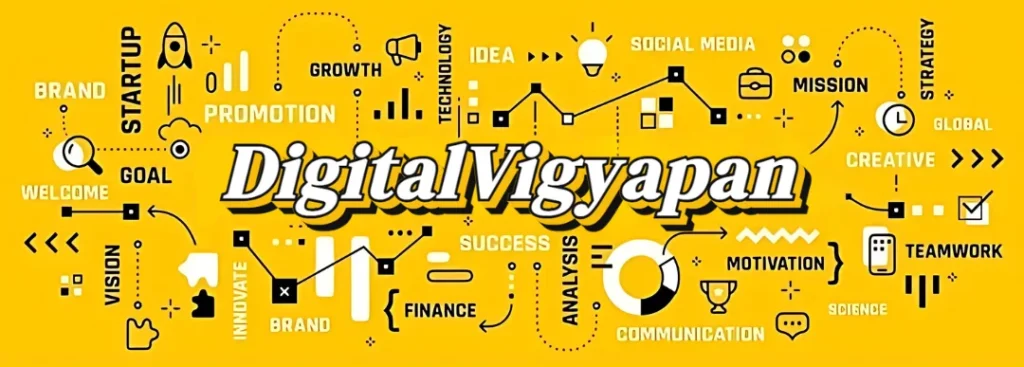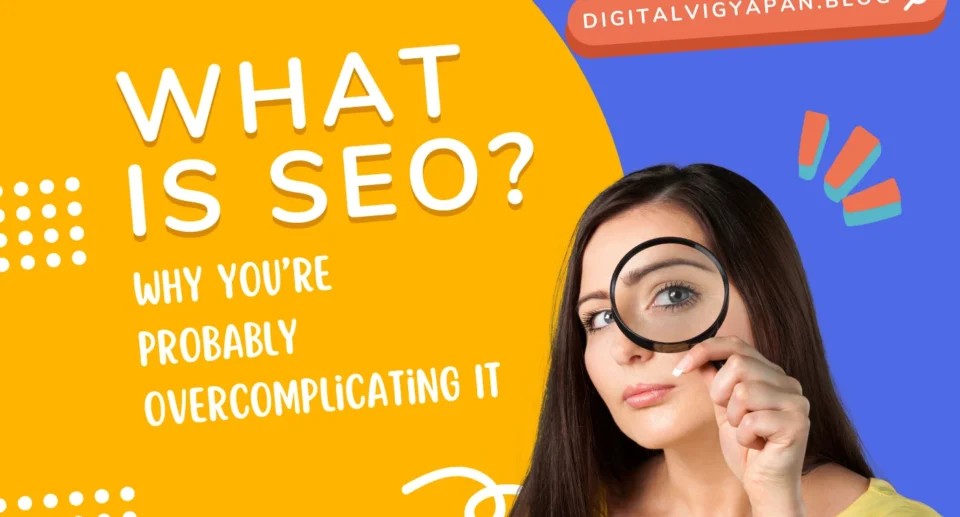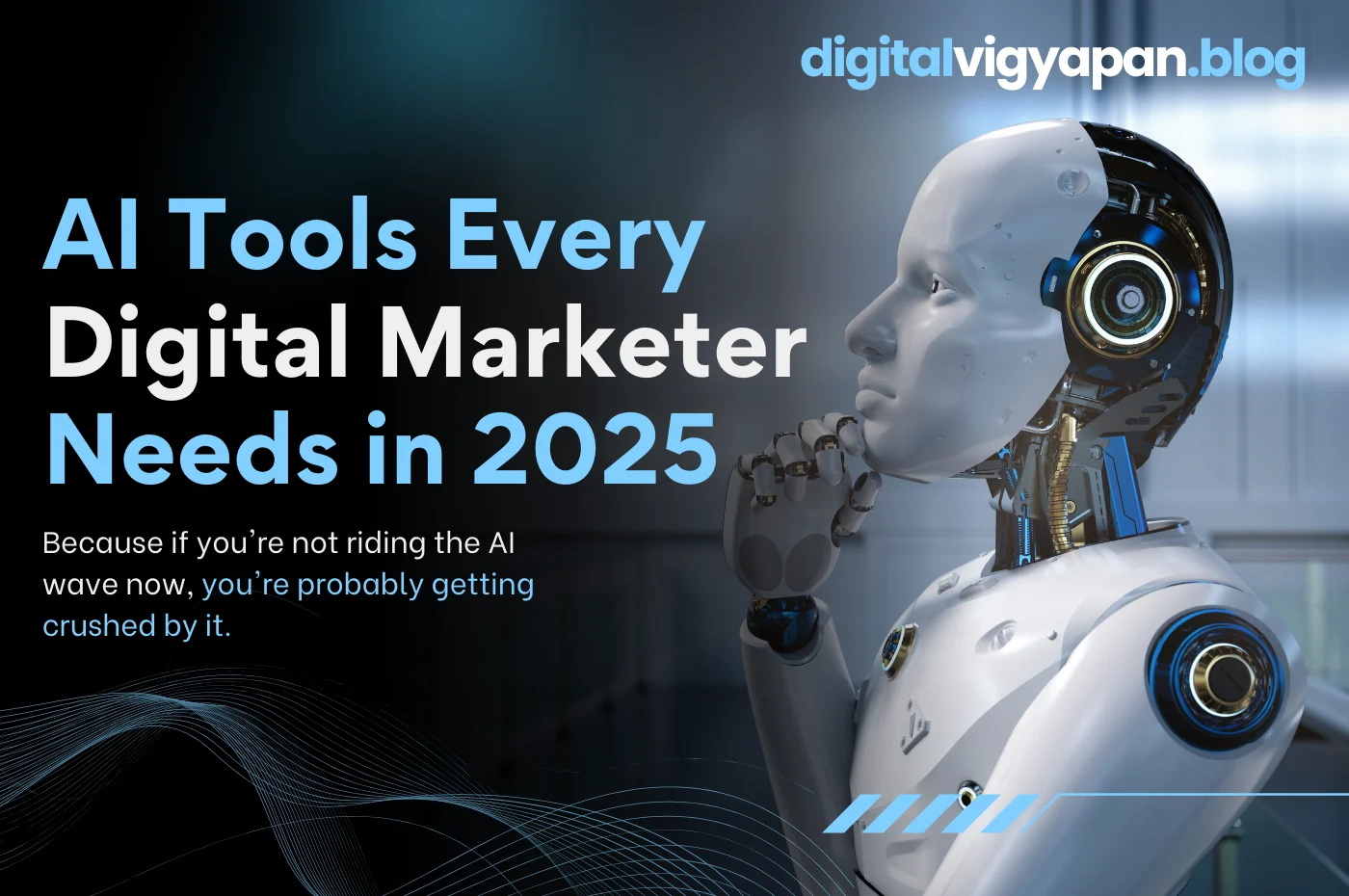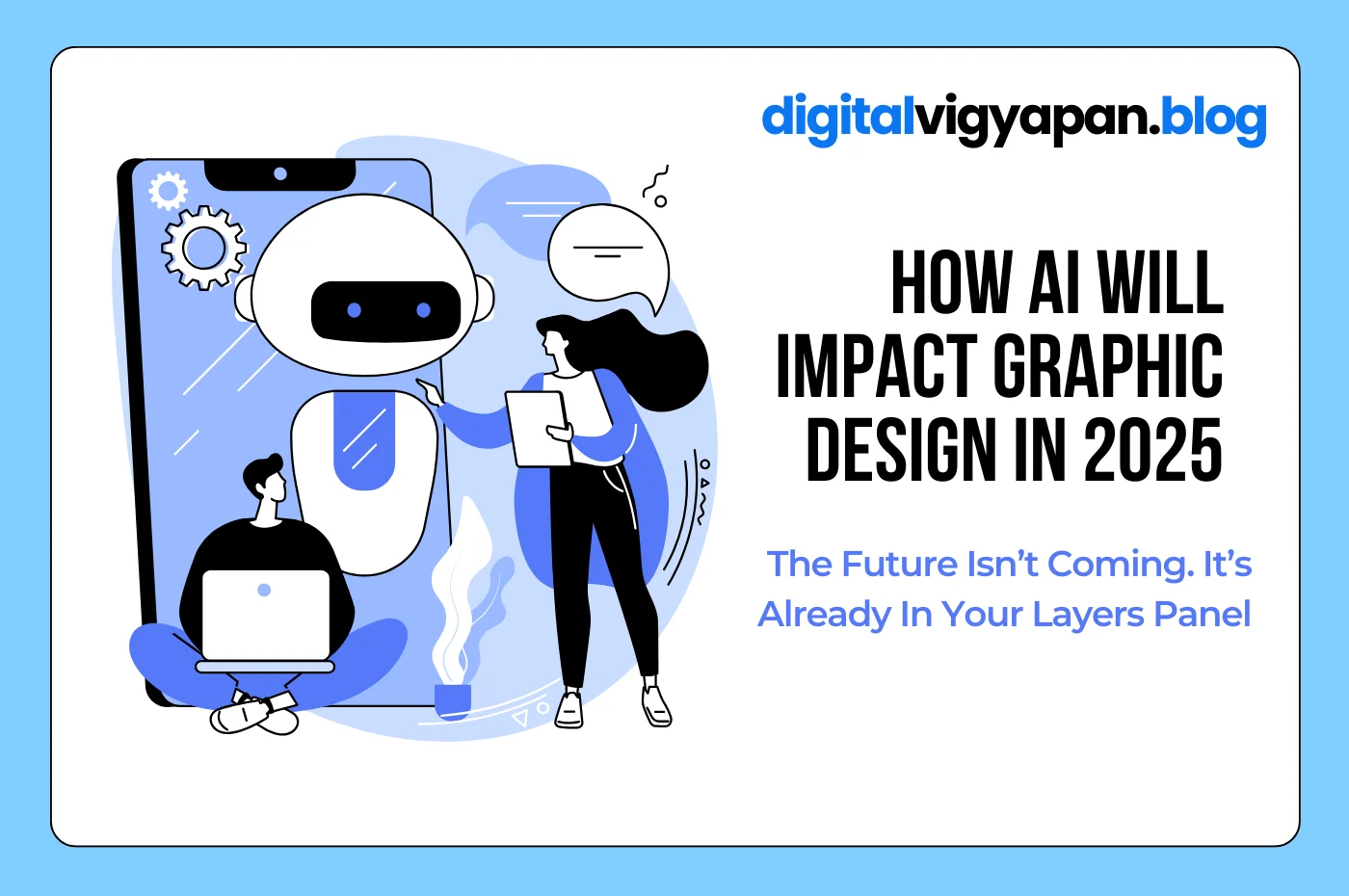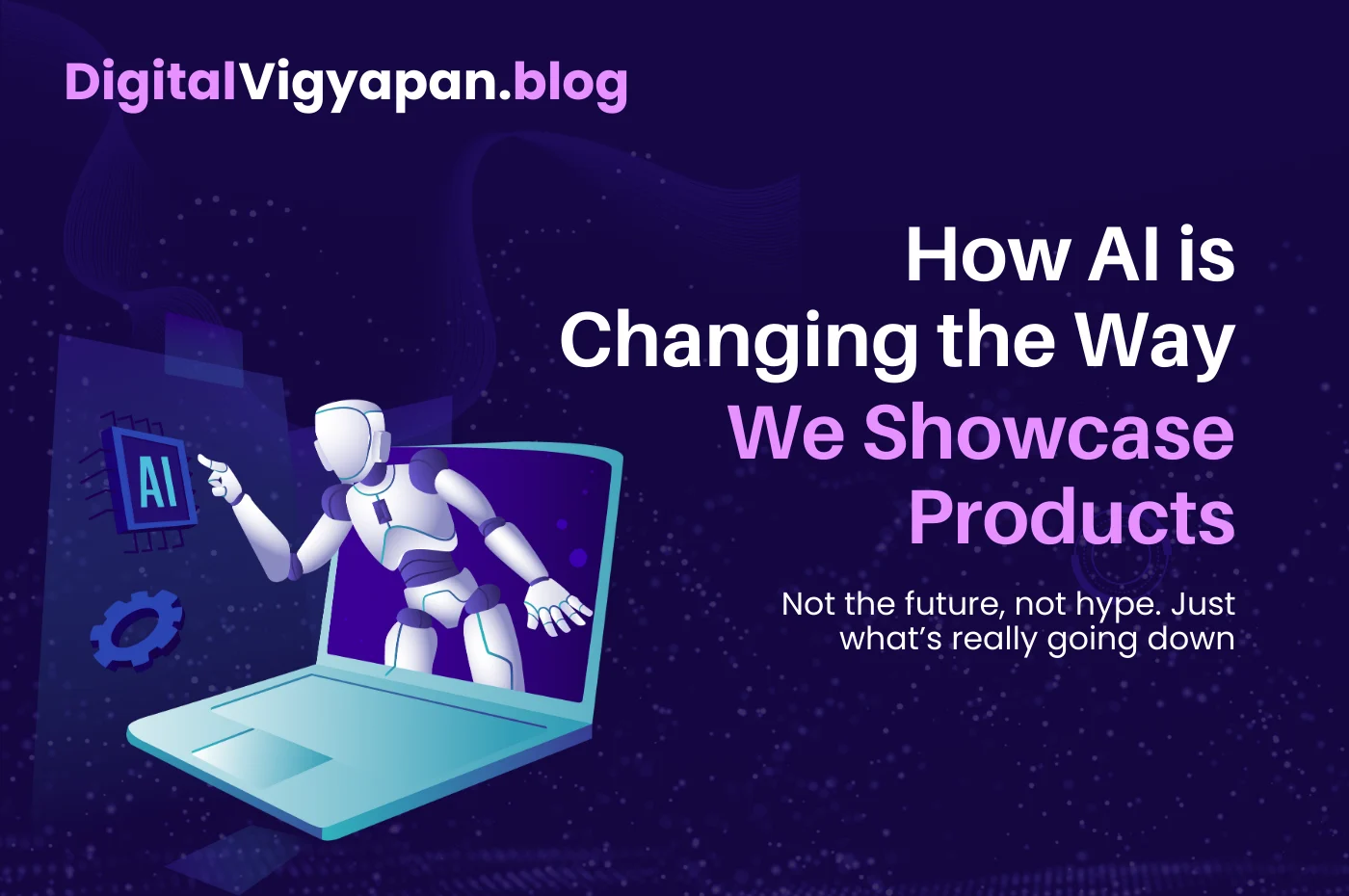AI-Powered Digital Marketing: Hype or Reality?
Jay Pathak
- April 24, 2025
- 6 Min Read
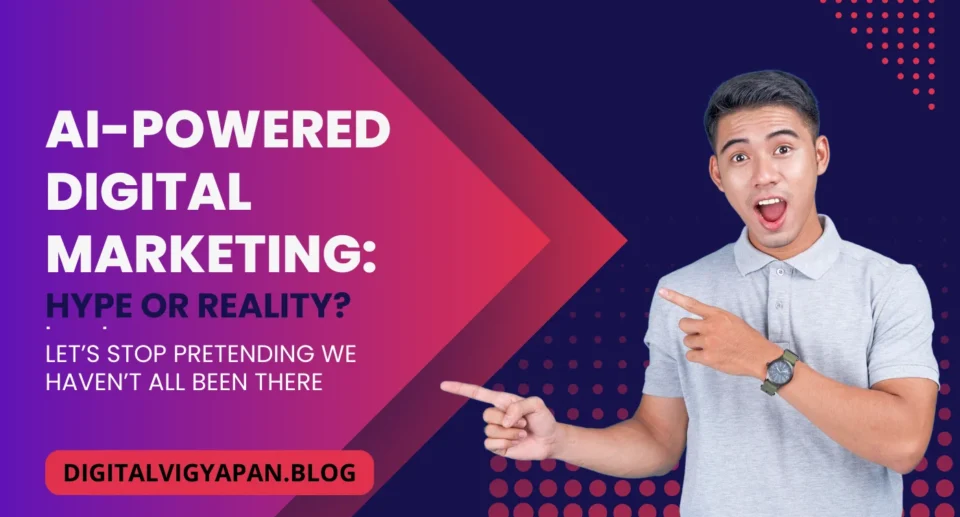
Let’s stop pretending we haven’t all been there.
You’re in a strategy meeting, someone drops, “We should start using AI to scale content,” and suddenly everyone’s nodding like that solves everything. No one asks how, why, or even what that actually means.
AI has become the go-to buzzword of modern marketing. It’s like the 2025 version of “synergy” or “growth hacking.” Everyone says it, but very few can explain what the hell they’re actually doing with it.
So let’s strip away the fluff. Is AI in digital marketing a game-changer? Or are we just hyping up fancy tools with average results?
The answer isn’t black or white. But let’s break it down, honestly.
What We Think AI Does in Marketing
Before we get into the real stuff, let’s talk about what most people think AI does.
Writes blog posts while you sleep
Creates ad campaigns that outperform your top marketing agency
Responds to every customer DM instantly and perfectly
Figures out exactly when, where, and how to market your brand
Increases conversions without you lifting a finger
Sounds amazing, right?
Too bad most of that is fantasy—unless you’ve already nailed your fundamentals.
Because here’s the truth: AI doesn’t replace strategy. It scales execution. That’s it.
Where AI Actually Delivers in Digital Marketing
Alright, let’s give credit where it’s due. AI is no joke when used properly. If you’re not a total tool junkie and actually know your goals, here’s where AI kicks ass:
Ad Targeting & Optimization
If you’re running paid ads and still manually adjusting bids, you’re wasting time. Platforms like Meta and Google use AI to constantly test:
Which audience segment converts better
Which creative performs higher
What placement gets more traction
When to push and when to pause
But here’s the key: If your creative is trash, AI will just optimize your trash faster. Your content still needs to be on point. AI just finds more eyeballs for it.
Email Segmentation & Timing
Back in the day, you blasted your whole list at 10 a.m. and prayed for opens.
Now? AI-powered tools like Klaviyo and Mailchimp predict:
When each subscriber is most likely to open
Which products they might be interested in
Who’s ready to buy vs. who needs nurturing
It’s not magic. It’s behavior-based learning. And it works.
But again—if your emails are boring or written like a corporate bot, AI can’t save that.
Chatbots for Support (and Lead Gen)
Let’s not hate on chatbots. When done right, they’re great for:
Answering FAQs
Qualifying leads
Collecting emails
Booking calls or demos
But if your bot is just a glorified pop-up saying “Hi! How can I help?” followed by 4 useless options—that’s not AI, that’s annoying.
The real power is in bots that learn from interactions and respond with context. Tools like Drift and Intercom are doing this well. But don’t expect them to replace real human support just yet.
Predictive Analytics
This is the stuff that feels like the future—because it kinda is.
AI tools can now help marketers:
Predict which leads will convert
Know when a customer is about to churn
Suggest which content to push next
Identify high-LTV customers early
The marketers who understand these insights—and act on them—are 10 steps ahead of the ones still living in spreadsheet hell.
Where AI Still Can’t Touch Humans
This is where the hype crashes hard. Because as powerful as AI can be, here’s where it still fumbles:
🧠 Original Strategy
AI doesn’t understand your brand. It can’t make judgment calls, take creative risks, or spot shifts in your market. It can analyze data. It can’t interpret culture.
You still need a human brain behind the wheel to figure out:
Who you’re marketing to
Why they care
How to say something different
What actually feels authentic
That’s not a prompt. That’s experience.
✍️ Truly Good Content
Sure, you can prompt an AI tool to write a blog. And it’ll spit out something that passes grammar checks and probably gets indexed by Google.
But ask it to:
Write something people feel
Drop a real opinion
Sound like your brand
Use humour, sarcasm, or storytelling that resonates
…and it stumbles.
Why? Because AI has no lived experience. No gut. No actual point of view.
AI content reads like AI content. You can polish it, edit it, rewrite it—but if you need to do that every time, maybe start with a real writer in the first place?
💡 Creative Breakthroughs
AI can remix what’s been done. It can’t invent.
It can’t:
Create a campaign that taps into a cultural moment
Come up with a bold ad that flips the script
Pivot your messaging mid-launch based on unexpected customer feedback
All of that still takes a human mind—and probably a whiteboard, 3 coffees, and a nap.
So… Is It Hype or Is It Real?
Here’s the real, human answer: It’s both.
AI in digital marketing is a powerful ally—if you know what you’re doing.
If you’re using it to:
Streamline workflows
Analyze better
Personalize smartly
Save time on repetitive tasks
Then hell yeah, it’s real. You’re working smarter.
But if you’re relying on it to:
Replace your creative team
Write your brand’s voice
Build your marketing strategy
“Do all the marketing for you”
Then sorry—it’s a hype train you’re not ready to ride.
Final Thoughts: AI Doesn’t Replace Marketers. It Empowers the Good Ones.
The marketers who will thrive in this AI era? They’re not the ones who automate everything.
They’re the ones who know what to automate—and what to keep 100% human.
They let AI handle the boring, repetitive stuff.
They use insights from data to fuel human-led storytelling.
They know that tools don’t build brands—people do.
So yeah, AI’s real.
But it’s not your savior.
You still need taste. You still need empathy. You still need guts.
And those? Still 100% human.
